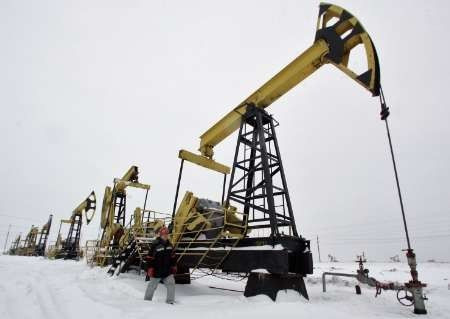Ukrainian Unrest Has These Eight Energy Companies On Edge

Companies exposed to Russia and Ukraine are watching their shares fall Monday, and energy companies are among the most affected after Russia authorized more military presence in Ukraine.
Here are eight energy companies to keep an eye on as the political tension between Western nations and Russia evolves.
BP
Bob Dudley, the chief executive of BP (NYSE:BP), is a board member of Rosneft, an oil-production giant primarily owned by the Russian government.
For almost 10 years, U.K.'s BP owned half of one of Russia’s largest oil producers, TNK-BP. Then in 2012, BP sold its stake in the company to Rosneft, which left BP with nearly 20 percent of Rosneft’s shares. The public owns nearly 11 percent, and the Russian government owns the rest, about 70 percent.
Rosneft contributed $1 billion to BP’s underlying profit, 35 percent of total profit, in BP’s fourth quarter.
Royal Dutch Shell
Anglo-Dutch company Royal Dutch Shell (NYSE:RDS.A) has a stake in a liquefied natural gas project in the Russian Far East, Sakhalin 2, and last month, it began drilling in Siberia with Gazprom Neft, a Russian oil producer. The two companies plan to use multi-fracturing technology in the Siberian shale, similar to the Bakken shale in North Dakota. Shell is also operating joint projects in the Russian Arctic.
ExxonMobil
After three years of declining output, Texas-based ExxonMobil (NYSE:XOM) is also exploring for oil in the Russian Arctic, in a joint venture agreement with Rosneft. Exxon also plans to begin a $300 million pilot project drilling in Siberia’s Bazhenov shale with Rosneft this year.
ENI
Italian-owned ENI is exploring oil offshore in the Arctic with Rosneft and is planning an undersea natural gas pipeline in the Black Sea with Gazprom, the Russian natural gas extractor. The Italian company calls itself the biggest buyer of natural gas from Gazprom and a major customer of Rosneft.
Statoil
Like Exxon and ENI, Norwegian-owned Statoil (NYSE:STO) has also signed a joint venture agreement with Rosneft to explore for oil in Russia’s Arctic. Statoil is paying for all costs of operation, which could range from $65 billion to $100 billion over decades, while Rosneft may get stakes in Statoil projects.
Total and China’s CNPC
French oil and gas corporation Total (NYSE:TOT) and China National Petroleum Corporation (CNPC), state-owned and China’s largest integrated energy company, each own one-fifth of Yamal LNG, a project in northern Russia. Novatek, an independent Russian gas producer partly owned by a longtime acquaintance of Russian President Vladimir Putin, holds a 60 percent stake in the project.
Fortum
Finland’s largest utility company, Fortum, sells heat and electricity in Russia’s industrial regions. About a quarter of Fortum’s 2016 earnings are expected to come from Russia, according to Deutsche Bank.
© Copyright IBTimes 2025. All rights reserved.






















